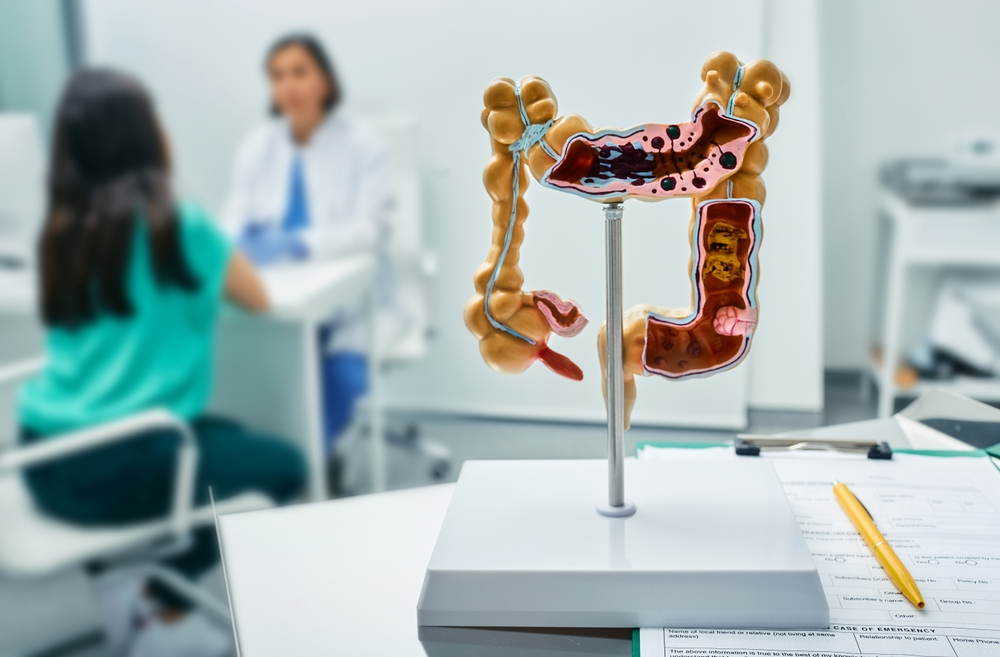Most people do not think much about their bowel movements beyond daily routine or occasional discomfort. However, your digestive system is often the first part of your body to signal when something is wrong. In fact, certain bowel movement changes can indicate serious health problems, some of which may become life-threatening if ignored. The gut reflects overall health, and when it is out of balance, it can be a warning sign of disease, infection, or even an increased risk of death. Understanding what is normal and what is not could potentially save your life. Here are the red flags your bowel movements may be showing and what they could mean for your long-term health.
Persistent Diarrhea Could Signal Infection or Disease

While occasional diarrhea is common and usually resolves on its own, chronic or persistent diarrhea is a red flag. If you have watery or loose stools for several days or more than three times a day over an extended period, it may signal an underlying issue. Persistent diarrhea can be linked to infections, chronic inflammatory conditions like Crohn’s disease or ulcerative colitis, or even gastrointestinal cancers. Diarrhea also dehydrates the body and causes loss of essential nutrients and electrolytes, which over time can weaken major organs. If left untreated, it increases the risk of kidney failure or cardiovascular complications, both of which can be fatal.
Bloody Stools May Indicate Internal Bleeding or Cancer

Seeing blood in your stool should never be ignored. Bright red blood often points to bleeding in the lower digestive tract, such as hemorrhoids or anal fissures. However, darker or tarry stools may signal bleeding higher up in the digestive system, possibly from ulcers, polyps, or tumors. Colon cancer frequently presents with blood in the stool, especially when accompanied by weight loss or a change in bowel habits. Internal bleeding, even in small amounts over time, can lead to severe anemia or indicate a more serious condition that needs immediate medical evaluation. The presence of blood in your bowel movements is one of the most urgent red flags your body can give.
Black or Tarry Stools Can Signal Gastrointestinal Bleeding

Black stools often mean there is digested blood present, usually from bleeding in the stomach or upper intestines. This could result from ulcers, infections, or long-term use of nonsteroidal anti-inflammatory drugs, also known as NSAIDs, like ibuprofen. These conditions may erode the stomach lining and create slow internal bleeding. If this bleeding is left unchecked, it can cause a significant drop in blood volume, leading to shock or organ failure. Black, sticky, or tar-like stool should prompt immediate consultation with a healthcare provider. If the color change is not linked to food or supplements like iron, it should be treated as a medical emergency.
Sudden Change in Bowel Habits May Point to Serious Disorders

Any sudden and unexplained change in your normal bowel patterns could be a sign that something more serious is developing. This includes a sudden shift to constipation, frequent diarrhea, or alternating between the two. Such changes may be associated with thyroid issues, metabolic disorders, nerve damage, or gastrointestinal diseases. Colon cancer and irritable bowel syndrome often present this way in early stages. A dramatic shift in how often you go to the bathroom, how your stool looks, or how your gut feels should be monitored closely. If these changes persist beyond a few days, medical attention is strongly advised.
Pencil-Thin Stools Could Be a Sign of Obstruction

When your stool starts appearing unusually thin, narrow, or ribbon-like, it may suggest that something is physically blocking part of your colon or rectum. This can be caused by a tumor, polyp, or narrowing of the bowel due to inflammation or scarring. While thin stools can occasionally happen due to diet or temporary stress, persistent changes may indicate that waste is not flowing through your intestines properly. An obstruction can lead to backup, infection, or even bowel perforation, all of which are serious medical conditions. Identifying and addressing the cause of narrow stools early can prevent dangerous complications.
Unexplained Weight Loss Alongside Bowel Changes Is a Major Warning

Losing weight without trying, especially when combined with changes in bowel habits, can indicate a severe health condition. This may be the result of malabsorption, where your body cannot absorb nutrients due to celiac disease, pancreatic insufficiency, or gastrointestinal cancers. Chronic inflammation in the gut can also raise your metabolism and increase calorie burning, even if you are eating normally. These problems gradually deplete your body’s reserves, leading to muscle loss, fatigue, and weakened immunity. If you notice ongoing bowel issues and unintentional weight loss, you should seek a thorough medical evaluation. This combination of symptoms could point to a progressive illness.
Mucus in Stool May Signal Inflammation or Infection

A small amount of mucus in the stool can be normal, but large amounts or frequent appearance of mucus may signal inflammation in the digestive tract. Conditions like irritable bowel syndrome, ulcerative colitis, and bacterial infections can increase mucus production as the body tries to protect the lining of the colon. Infections from bacteria such as E. coli or salmonella can also result in mucus, often accompanied by cramps and urgency. While mucus itself is not harmful, it is a sign that your digestive system may be under attack or out of balance. When paired with other symptoms like bleeding or diarrhea, it can be a red flag worth investigating.
Read More: 9 Doctor-Approved Tips for Living a Longer, Healthier Life
Severe Constipation May Be a Sign of Systemic Issues

Occasional constipation is usually harmless, but chronic or severe constipation can point to bigger problems. It may be caused by neurological conditions, diabetes, hormonal changes, or even early signs of colorectal cancer. Straining often and not being able to pass stool for days can lead to impacted bowels, which in rare cases may cause perforation or infections. Chronic constipation also increases the risk of developing diverticulosis, where small pouches form in the colon and become inflamed or infected. These complications can quickly become life-threatening if not treated in time. If your constipation lasts more than a week or comes with pain and bloating, medical help is necessary.
Floating or Greasy Stool May Reveal Digestive Disorders

Stools that float or appear greasy and foul-smelling may indicate fat malabsorption. This condition occurs when the body cannot properly break down and absorb fats from food. Possible causes include celiac disease, chronic pancreatitis, or gallbladder issues. Fatty stools may look pale, bulky, and may stick to the toilet bowl. Long-term malabsorption leads to nutrient deficiencies, especially of fat-soluble vitamins like A, D, E, and K, which are essential for immune function, bone health, and blood clotting. Left untreated, fat malabsorption can result in gradual systemic failure. If this type of stool becomes frequent, a proper diagnosis should be pursued.
Read More: 50 Weird Signs That Lead To a Cancer Diagnosis
Final Thoughts

Your body often sends clear signals when something is not right, and your bowel movements are one of the most telling indicators. While many changes may seem minor or temporary, certain red flags should not be ignored. Blood in the stool, black or tar-like appearance, narrow shape, persistent diarrhea, or unexplained weight loss all warrant medical attention. These symptoms may indicate conditions that, if left untreated, can lead to severe complications or even death. Paying attention to what your body is trying to communicate through your gut can lead to earlier diagnosis, more effective treatment, and better overall health. When in doubt, it is always safer to speak with a healthcare provider rather than wait. Your life may depend on it.
Disclaimer: This article was created with AI assistance and edited by a human for accuracy and clarity.
Disclaimer: This information is not intended to be a substitute for professional medical advice, diagnosis or treatment and is for information only. Always seek the advice of your physician or another qualified health provider with any questions about your medical condition and/or current medication. Do not disregard professional medical advice or delay seeking advice or treatment because of something you have read here.

